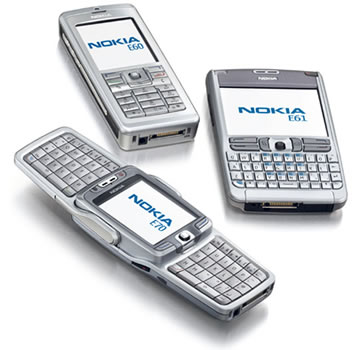Nokia ‘Paid Millions’ To Symbian Blackmailers

Nokia paid several million euros to stop blackmailers revealing the source code of the Symbian OS
Nokia was blackmailed back in 2007 into paying ‘several millions of euros’ to stop criminals from revealing the source code of its then market-leading Symbian mobile operating system.
And it seems that the blackmailers have never been caught, and the case is still open.
Successful Blackmail
The news that Nokia was successfully blackmailed emerged in a report from Finnish TV station MTV.
According to that report, the blackmailers threatened to make public the encryption key for a core part of the Nokia’s Symbian software. If that happened, hackers and criminals would have been able to pass off their apps or malware as being Nokia approved.
 This of course would have been a disastrous scenario for the Finnish mobile phone giant, which led the mobile market back then with its Symbian-based handsets which commanded 50 percent of the smartphone market.
This of course would have been a disastrous scenario for the Finnish mobile phone giant, which led the mobile market back then with its Symbian-based handsets which commanded 50 percent of the smartphone market.
It is not clear at this stage how the blackmailers were able to gain the Symbian encryption keys, but Nokia alerted the Finnish police once it was contacted by the blackmailers. According to MTV, Nokia agreed to deliver the cash to a car park in the central Finnish town of Tampere.
But then things went wrong. The blackmailers reportedly collected the cash, but the police lost track of the suspects and were unable to make an arrest.
“The matter is investigated as aggravated extortion,” Detective Superintendent Tero Haapala of the National Bureau of Investigation told MTV News.
No other details were revealed, and it seems that the investigation has stalled.
Symbian Decline
The Symbian mobile operating system was based on Psion’s EPOC OS, which was developed way back in 1997. The OS was backed by Nokia, Ericsson and Motorola, and was the most popular smartphone operating system on a worldwide average until the end of 2010.
Unfortunately for Nokia, Symbian was unable to compete against the much slicker user interfaces and app ecosystems that came with rivals such as Android and iOS, and it gradually lost market share against this new competition. Critics feared Nokia was in a terminal position in the mobile phone market.
In 2010 Nokia got a new boss in the form of CEO Stephen Elop. He recognised that Nokia was standing on a “burning platform”, and in February 2011 announced that Nokia would drop Symbian and move its smartphone range to Microsoft’s Windows Phone operating system.
Microsoft eventually ended up buying Nokia’s handset business for £4.6bn, but it is thought that there are still between 200 and 300 million Symbian devices in use today.
Symbian itself officially died in June 2013, when Nokia halted shipments of its PureView 808 phone, the last handset to run the Symbian operating system. Outsourcing specialist Accenture is continuing to support the operating system until 2016.
What do you know about Nokia? Take our quiz!